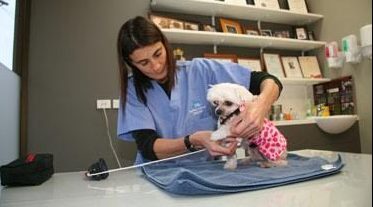Make sure your pooch has the best chance of staying healthy this season.
Adult heartworms live in the blood vessels of the lungs and to a lessor extent the right side of the heart of infected dogs. After mating the female produces microfilariae, (microscopic larvae) that are released into the dogs blood stream, the infected dog is now a reservoir of infection.
When a female mosquito ingests blood from an infected dog, it takes up the microfilariae which continue to develop in the body of the mosquito. The mosquito acts as a carrier but is not harmed.
Heartworm cannot be transmitted directly from dog to dog. Its development to adulthood requires a stage inside a mosquito. If this mosquito then bites the same or another dog, the larva continues to grow. By the time it worked its way through the skin, fat and muscle into the blood stream, it is about 1-2 cm in length. It then travels to its final destination in the blood vessels of the lungs and heart. Here it can grow to 15-18 cm.
The presence of the larva and worms in the blood vessels and heart can cause severe and life threatening damage to the lungs and heart.
Dogs infected with heartworm are not always initially symptomatic. Clients can present with vague signs such as exercise intolerance, lethargy and weight loss. Or cases can be more severe with distended abdomen, problems breathing or to collapse.
You can’t stop your dog being bitten by an infected mosquito, but you can prevent infection with heartworm microfilaria.
There are a variety of products on the market ranging for daily tablets, transdermal spot ons, monthly tablets or a once a year injection.
Our hospitals recommend a once a year adult preventative via injection. It is initially given at 12 weeks, with a booster at 6 months of age. This then brings it into line with the first adult annual vaccinations. The idea is that you come in once a year for the annual check-up, vaccinations and a heartworm injection. The advantage of a once a year injection is that you don’t have to remember to give something each month. Studies have demonstrated that a large number of dogs on monthly treatment miss scheduled doses, putting them at risk of infection. Most vets will send out reminders to let you know when your annual heartworm infection is due. Just like they do with vaccinations.
If you have missed a treatment, don’t worry, your vet can run an in-house test to ensure your pet is in the clear, then reinstate a preventative.
If you are worried about heartworm, or not sure if you are covered, give your vet a call. They will be more than happy to help you out.
